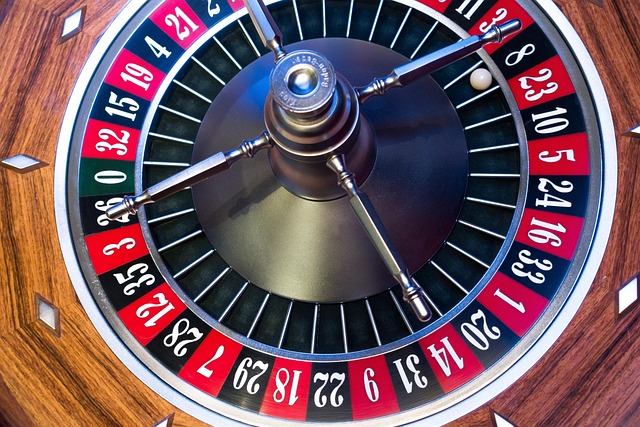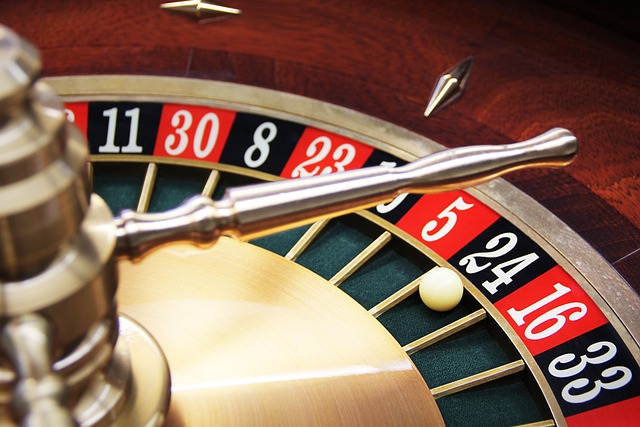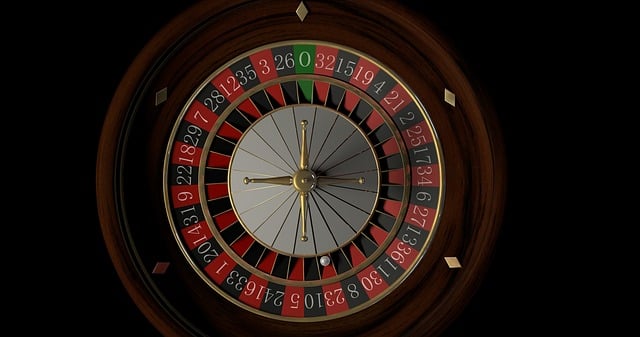Roulette strategy involves understanding rules, odds, and bet types to make informed decisions. Various systems like Martingale, Fibonacci, Parlay, and Reverse Martingale exist with differing risks and effectiveness, but none eliminate the house edge. Responsible gambling practices, including bankroll management, are vital alongside knowledge of roulette variations to maximize wins while mitigating financial risks.
Roulette is a captivating game that has enthralled players for centuries. While it’s primarily a game of chance, mastering Roulette Strategy can enhance your experience and potentially boost winnings. This article delves into the fundamentals of roulette rules and odds, explores popular strategy techniques, and examines the risks associated with these approaches. By understanding these key aspects, you’ll be better equipped to navigate the spin and make informed decisions at the roulette table.
- Understanding Roulette Rules and Odds
- Popular Roulette Strategy Techniques
- Risks and Considerations for Roulette Strategies
Understanding Roulette Rules and Odds

Roulette is a captivating game that requires both skill and strategy, especially when players aim to outsmart the house edge. Before implementing any roulette strategy, understanding the rules and odds is paramount. Each spin consists of a croupier spinning a wheel with numbered pockets, from 0 to 36, plus additional zeros in American roulette. Players can bet on numbers, colors (red or black), odd/even, or various combinations.
The odds of winning vary based on the type of bet. Straight bets have higher chances of winning but lower payouts, while bet types like splits, streets, and corners offer better odds with reduced returns. Knowing these probabilities is crucial for developing a roulette strategy. By familiarizing themselves with the rules and odds, players can make informed decisions, allowing them to navigate the game with confidence and potentially enhance their chances of success in this thrilling casino staple.
Popular Roulette Strategy Techniques

In the ever-popular casino game of roulette, players have developed various strategies over time, each attempting to gain an edge over the house. Among these, several techniques have gained notoriety for their perceived effectiveness. One such method is the Martingale System, which involves doubling your bet after every loss until you win, aiming to recoup all previous losses with one successful bet. Another popular strategy is the Fibonacci System, where bettors increase their bets based on a sequence of numbers from the Fibonacci series, believed to minimize losses while allowing for significant wins.
Additionally, the Parlay Strategy encourages players to combine multiple losing bets into one large bet on a subsequent spin, offering potentially higher payouts. The Reverse Martingale, an alternative approach, suggests betting against the trend by reducing stakes after each win, which can be risky but may yield substantial gains. Each of these Roulette Strategy techniques promises success, yet their effectiveness remains a topic of debate among both players and casino experts alike.
Risks and Considerations for Roulette Strategies

Roulette strategy, while intriguing, comes with its share of risks and considerations that players often overlook. The house edge, a fundamental concept in gambling, is a significant factor to keep in mind. This edge, inherent in roulette games, favors the casino over time, meaning each bet has an inherent risk. Despite popular beliefs, no single roulette strategy can eliminate this advantage; strategies merely aim to minimize losses and maximize wins within these constraints.
Another crucial consideration is the diversity of roulette variations. European, American, and French roulette differ in rules and odds, affecting the overall game dynamics. Players should understand each variant’s nuances to implement their chosen strategies effectively. Additionally, managing bankroll and sticking to a predetermined budget are essential practices to ensure responsible gambling and mitigate potential financial risks associated with any roulette strategy.
Roulette is a game of chance, but understanding the rules and employing strategic techniques can enhance your experience. The article has explored various roulette strategy strategies, from understanding basic odds to popular techniques like Martingale and Fibonacci. While these strategies may not guarantee wins, they offer structured approaches to manage risks. Always remember that each spin is independent, and past results don’t influence future outcomes. As you navigate the table, stay informed about the game’s dynamics, adapt your strategy accordingly, and enjoy the thrill of roulette while keeping your bets in check.






